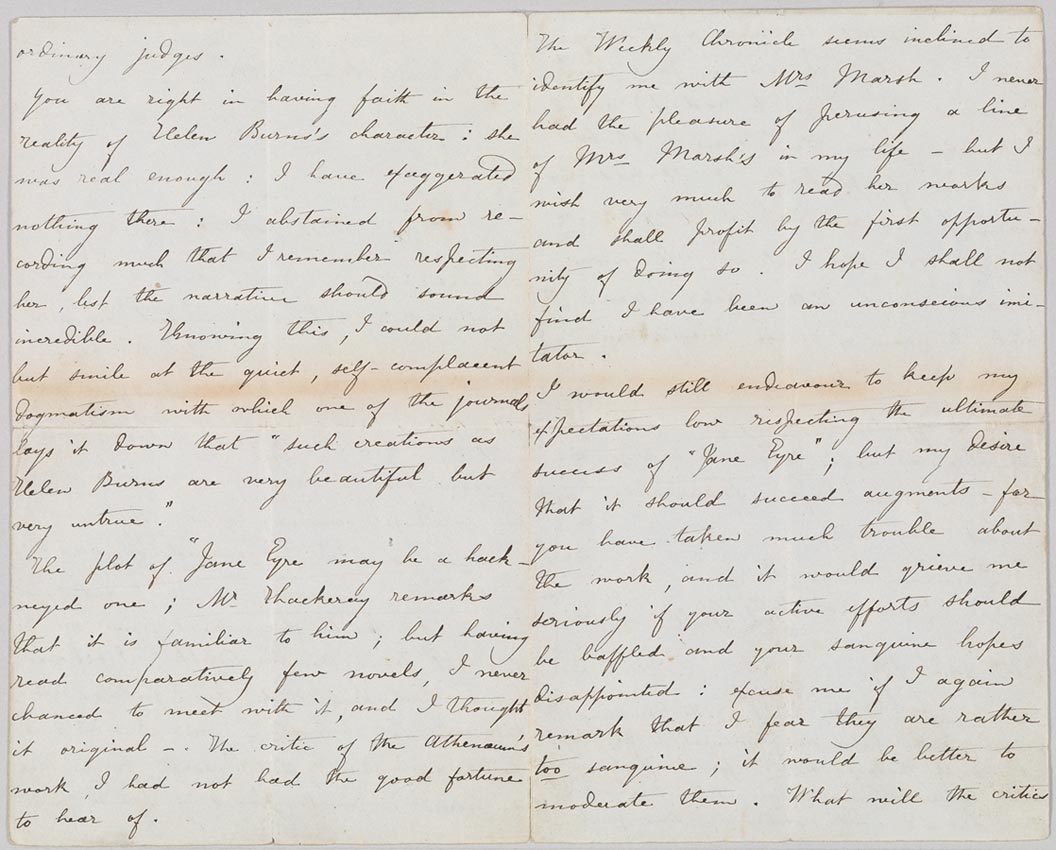Letter to William S. Williams, 28 October 1847, pages 2–3

Letter to William S. Williams of Smith, Elder & Co., dated Haworth, 28 October 1847
Henry H. Bonnell Collection, bequest of Helen Safford Bonnell, 1969
In this letter to William S. Williams of the firm that had published Jane Eyre, Brontë reacted to some of the early reviews of her first published novel. She defended her portrayal of Helen Burns, a virtuous child who dies in Jane’s arms. Helen was, Brontë implied, a fictional reimagining of her own sister Maria, who had died at the age of eleven after falling ill at the Clergy Daughters’ School.
ordinary judges.
You are right in having faith in the reality of Helen Burns’s character: she was real enough: I have exaggerated nothing there: I abstained from recording much that I remember respecting her, lest the narrative should sound incredible. Knowing this, I could not but smile at the quiet, self-complacent dogmatism with which one of the journals lays it down that “such creations as Helen Bums are very beautiful but very untrue.”
The plot of “Jane Eyre[”] may be a hackneyed one; Mr. Thackeray remarks that it is familiar to him; but having read comparatively few novels, I never chanced to meet with it, and I thought it original –. The critic of the Athenaeum’s work, I had not had the good fortune to hear of.
The Weekly Chronicle seems inclined to identify me with Mrs Marsh. I never had the pleasure of perusing a line of Mrs Marsh’s in my life – but I wish very much to read her works and shall profit by the first opportunity of doing so. I hope I shall not find I have been an unconscious imitator.
I would still endeavour to keep my expectations low respecting the ultimate success of “Jane Eyre”; but my desire that it should succeed augments – for you have taken much trouble about the work, and it would grieve me seriously if your active efforts should be baffled and your sanguine hopes disappointed: excuse me if I again remark that I fear they are rather too sanguine; it would be better to moderate them. What will the critics